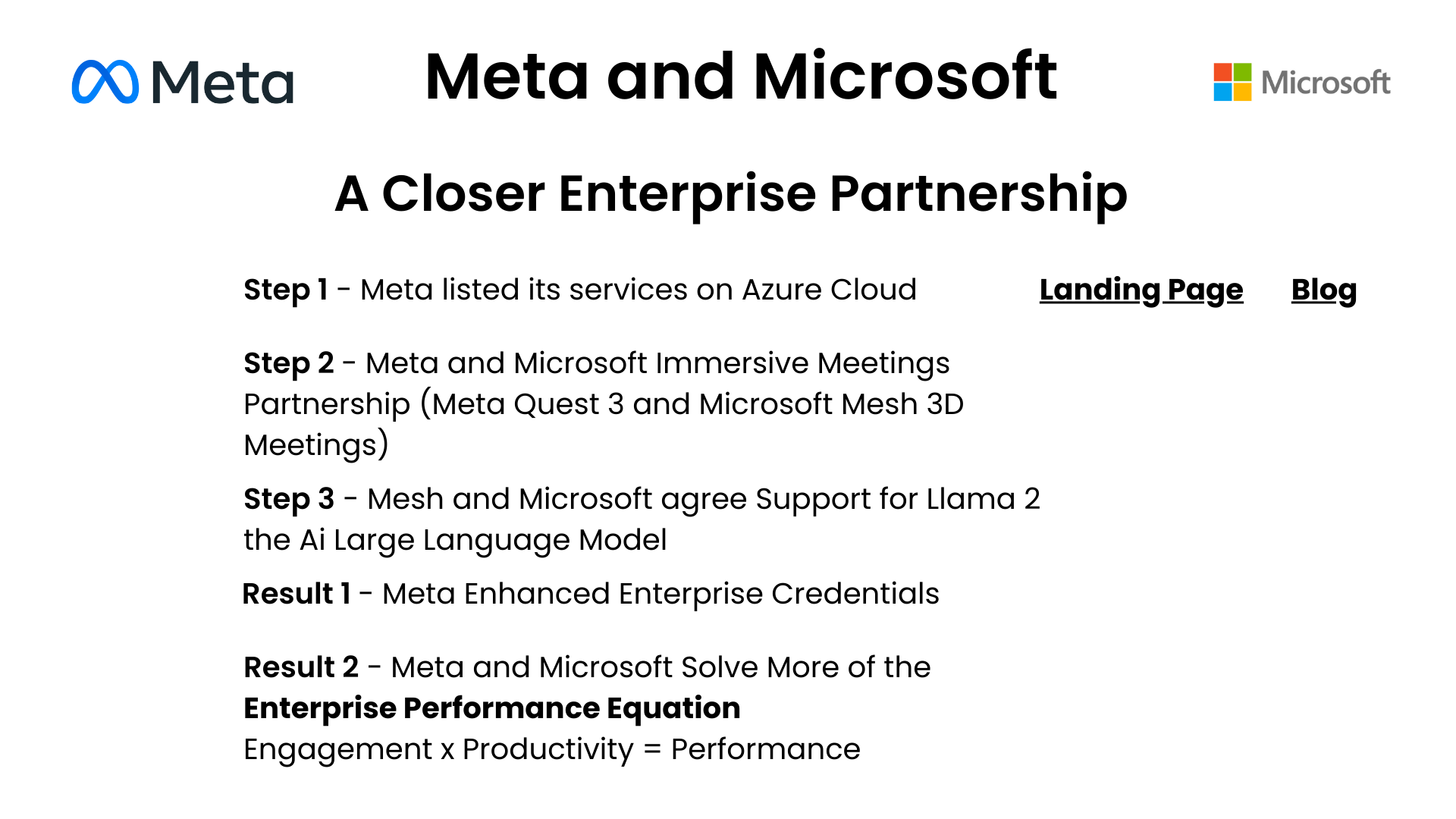Both Meta and Microsoft have made significant strides in accelerating enterprise adoption of immersive technologies since July 2024, pushing the boundaries of what’s possible in virtual collaboration and productivity. These developments are driving the rapid expansion of immersive platforms, making them more accessible, scalable, and impactful for businesses across industries.
1. Microsoft’s Re-engineered Mesh with Teams Communication Infrastructure (July 2024)
Microsoft made a pivotal move by re-engineering Microsoft Mesh to operate on the existing Teams infrastructure. This integration eliminates a key barrier to enterprise adoption: the need to adjust corporate firewalls. By leveraging Teams' secure, compliant infrastructure, businesses can easily adopt Mesh without compromising their network security protocols. This development simplifies the rollout of immersive meeting technology, making it easier for organisations to integrate virtual collaboration tools into their workflows without major IT overhauls.
2. Incorporation of OpenAI into Microsoft Mesh (July 2024)
In the same month, Microsoft took another leap by embedding its OpenAI capabilities into Mesh, enhancing the platform’s intelligence and productivity. This integration allows for the use of AI-powered features such as real-time translation, transcription, and contextual assistance during virtual meetings. The AI integration also improves decision-making and collaboration by providing instant insights and helping participants stay more engaged in meetings. These advancements make Mesh a powerful tool not just for communication but also for workflow automation and data-driven insights during virtual interactions.
3. Extended Multi-room Capacity (September 2024)
On September 4th, Microsoft expanded the multi-room capacity of Mesh from 200 to 330 attendees. This increase in scalability allows larger teams, town halls, and conferences to take place in immersive environments. Enterprises can now host bigger, more impactful events within Mesh, ensuring that more employees can participate in immersive meetings at once. This upgrade supports the growing demand for larger-scale virtual collaboration as businesses continue to operate in hybrid models.
4. Meta’s Launch of the Meta Quest 3S at £300 (September 2024)
Meta’s introduction of the Meta Quest 3S at a £300 price point has made immersive technology far more accessible to enterprises, facilitating scalable adoption of VR across industries. By offering an affordable VR headset without compromising on quality, Meta has positioned the Quest 3S as an ideal solution for companies looking to invest in virtual reality on a budget. This affordability opens up the potential for widespread use in training, collaboration, and employee engagement, making immersive meetings and environments a realistic option for businesses of all sizes.
5. Microsoft Adds Guest Facility to Mesh (October 2024)
As of this month, Microsoft has further simplified Mesh adoption by introducing a guest facility, allowing participants to join meetings from any domain. This flexibility is crucial for businesses that rely on external collaborators, partners, and clients. The ability to include guests seamlessly in virtual meetings without requiring them to have a specific domain or corporate account makes Mesh more versatile, particularly for cross-company projects and external stakeholder engagements.
6. White boarding Collaboration in Microsoft Mesh (Coming November 2024)
Looking ahead to November, Microsoft plans to introduce white boarding capabilities in Mesh, further enhancing collaborative tools in immersive meetings. This feature will allow users to brainstorm, plan, and visualise ideas together in real-time, mimicking the experience of physical whiteboards in a virtual space. White boarding will be particularly useful for project planning, product development, and creative brainstorming, enabling teams to collaborate more effectively within immersive environments.
These developments, driven by both Meta and Microsoft, reflect a broader push towards making immersive technologies a central part of enterprise collaboration. By removing technical barriers, enhancing scalability, and integrating AI-powered tools, both companies are creating more accessible, cost-effective, and innovative solutions that transform how businesses operate, communicate, and innovate.

-2.png)
.webp)
.webp)
.webp)

